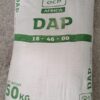NAIROBI, Kenya, Dec 10 – Many of us have set up an automatic daily, weekly or monthly savings programs probably as an emergency fund which continues to build up. However, as much as one is happy with the progress at which he is able to maintain his savings program despite the high rate of spending; it is clear that most of us have no idea where we should keep these savings so that the money earns the most interest for you at the end of the day.
According to Njeri Kiragu, a wealth and assets solutions provider at Better Money Financial Services, there are various savings vehicles available, but not all of them are appropriate for every situation.
The following are some of the options;
Savings Accounts: Most likely, you have already opened a savings account with your local commercial bank and made a standing order to make the transfer of money to the savings account easy. Ms Kiragu explains that a savings account is the most convenient means of saving money, but it might not be putting your money to work.
She adds that when using a savings account, it is important to look at the interest rate that the commercial bank is offering. Depending on where you bank and what type of account you have, you could be earning anywhere from less than one percent up to four or more.
She notes that the problem is that many commercial banks only provide high interest rates for significant balances over a certain amount. “For example if you find you are only earning something like 0.65 percent, after accounting for inflation, you are actually losing purchasing power,” she advises.
Despite this, Ms Kiragu notes that the best thing about savings accounts is that they are completely liquid since one can access his money whenever he needs it.
Money Markets: Locally they are commonly known as Treasury Bills and Bonds.
Treasury Bonds are medium to long term Government Securities sold by Central Bank of Kenya (CBK) on behalf of Treasury. An investor earns a return during the period of the security and repayment of the face value is made on maturity date.
On the other hand Treasury Bills are short-term Government securities sold by the CBK on behalf of the Treasury. An investor buys at a discount and receives payment of face value on maturity date. Currently the Treasury Bills on offer are for maturity periods of 91days (three months) and 182 days (six months).
It is important to note that treasury bonds and bills are paperless securities therefore investors receive a statement showing their holdings have been registered on the Central Depository system with National Debt Office of the Central Bank.
Generally according to Ms Kiragu the money market accounts have higher interest rates than a savings account.
Fixed deposit account: One can also save money through a fixed deposit account also known as a certificate of deposit.
Ms Kiragu notes that this type of account is a time deposit, which means that the money you place on deposit must remain there for a specified amount of time before you can withdraw it.
One can open a fixed deposit account with a variety of time frames as short as one month to upwards of many years or more. In most cases, the longer you agree to leave your money on deposit, the more interest the bank will pay you.
Ms Kiragu notes that since you are required to leave your money in the account for the preferred amount of time, this can make your money less accessible than a savings or money market account. “This can be a good thing, since it encourages you to leave the money alone, but in an emergency where the money is needed very quickly, this can be a hindrance,” adds Ms Kiragu. Fortunately, one can access his money before it matures, but the bank will impose a penalty which could effectively wipe out the interest you have earned.
What is right for you?
Ms Kiragu notes that when it comes to savings, there isn’t a right or wrong answer. It ultimately depends on your needs. If you are using your savings for overdraft protection and want to have it available instantly in the event you need it, a savings account might be the most appropriate. If you are saving for a large purchase or something predictable a few months or years down the road, you can probably find better rates with a fixed deposit or possibly a money market fund.
Investment and financial advisers concur that the option is to have multiple savings vehicles. There will be part of an emergency fund in a savings account at the bank, possibly some cash in a money market fund in an investment account, and some in a fixed deposit account stashed away for longer-term savings. Whatever the case may be, you want to make sure your money is working as hard as it can.



































